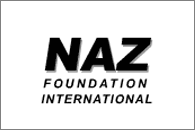According to The Times of India, the London-based Naz Foundation which promotes sexual health among MSM (men who have sex with men) in South Asia has filed a petition with New Delhi's high court seeking to exclude gay sex from Section 377 of the Indian Penal Code.

The foundation argues that the penal code provision not only violates the right to life and liberty as outlined in the Indian constitution but also impedes the effective control of AIDS.
They reason that consensual adult sexual relations in private fall within the classification of intimate associations protected from government intrusion under Article 21 of the Indian constitution.
In its petition the group asserts that Section 377 is discriminatory because it criminalises predominantly homosexual acts and imposes traditional gender stereotypes of "natural" sexual roles for men and women upon sexual minorities. In effect, the foundation says, Section 377 provides moral and legal sanction for the continued social discrimination of sexuality minorities.
The foundation, which runs a regional liason office in Lucknow, India has been active in advocating gay rights and providing HIV/AIDS support and education in Bangladesh, India, Nepal, Pakistan and SriLanka which represents 20 per cent of the world?s population.
Gay rights activists who have long campaigned against Section 377 have called it ?archaic law passed under the colonial government?. Section 377 was enacted by the British in 1862 and has been repealed in England in 1967.
Naz Foundation (India) has been awarded the 2001 Commonwealth Award for Action on HIV/AIDS for outstanding 'Prevention' work related to the HIV/AIDS epidemic.
